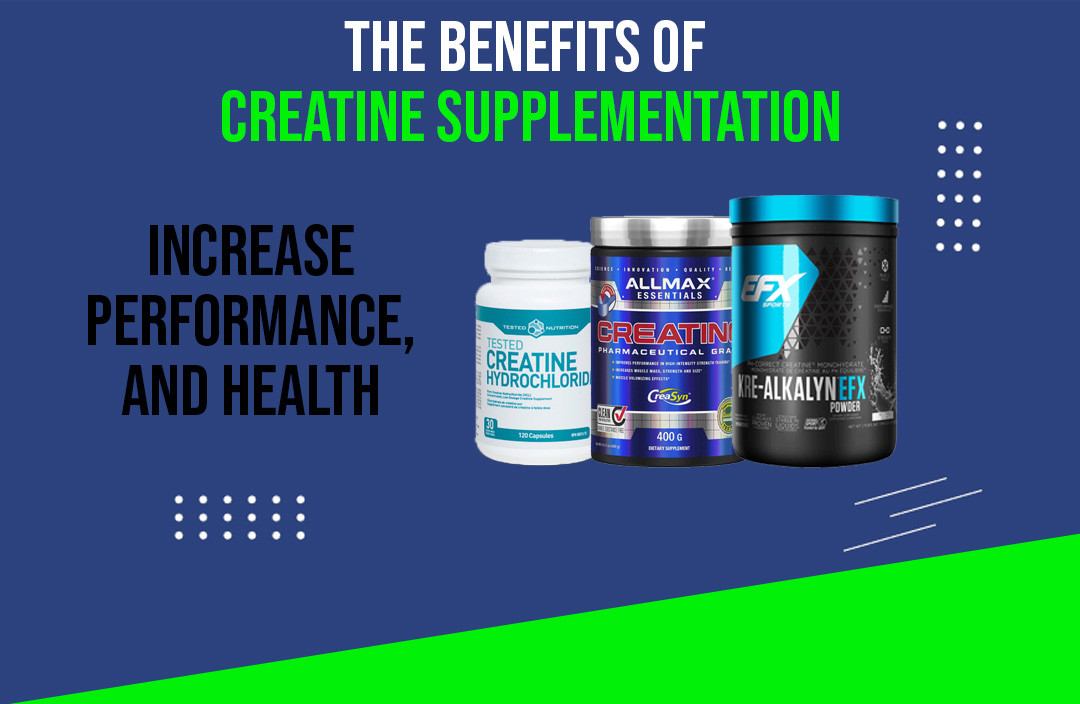The Benefits of Creatine Supplementation
Creatine is a popular dietary supplement widely used by athletes and fitness enthusiasts to enhance performance and support muscle growth. In this article, we will explore the benefits of creatine supplementation and the different forms available in the market.
Creatine monohydrate is one of the most researched and effective supplements for athletes and bodybuilders. It is safe, cheap, and easy to use. You can take it as a powder mixed with water or juice, or as a capsule or tablet. The recommended dosage is 3–5 grams per day, preferably after your workout, however many clients take . You can also do a loading phase of 20 grams per day for 5–7 days to saturate your muscles with creatine faster.
If you want to boost your performance and physique, creatine monohydrate is a supplement you should consider. It has many proven benefits and very few side effects. However, make sure to consult your doctor before taking any supplement, especially if you have any medical condition or are taking any medication.
Benefits of Creatine
Creatine supplementation offers several potential benefits for individuals engaged in strength training or high-intensity exercise:
- Increased muscle strength and power: Creatine helps in the production of ATP, the primary energy source for muscle contractions. By increasing the availability of ATP, creatine can enhance muscle strength, power, and performance during high-intensity activities like weightlifting and sprinting.
- Improved muscular endurance: Studies have shown that creatine supplementation can delay muscle fatigue, allowing individuals to perform more repetitions or sustain intense exercise for longer durations. This can be particularly beneficial for athletes participating in sports that require repeated bursts of energy.
- Increased muscle mass: Creatine has been linked to an increase in muscle mass due to its ability to promote protein synthesis and cell volumization. This can lead to greater muscle size and improved body composition.
Benefits of Creatine Supplementation on Brain Function, Memory, and Health
The thing about creatine is that is has far reaching benefits outside just sports performance here are few other benefits of supplementing with creatine:
- Creatine for brain function
- Creatine may help with Parkinson’s disease
- Creatine may fight other neurological diseases
- Creatine may lower blood sugar levels
- Creatine to reduce fatigue and tiredness
- Creatine Supports many other functions in muscles
- It can improve your brain function by enhancing the energy metabolism and antioxidant capacity of your brain cells.
- It can prevent dehydration, muscle cramps, and injuries by increasing the water content of your muscle cells, which also makes them look bigger and fuller.
Benefits of Creatine for Athletes
According to Mayo Clinic, creatine might benefit athletes who need short bursts of speed or increased muscle strength, such as sprinters, and team sport athletes. Since creatine helps to regenerate a molecule called adenosine triphosphate (ATP), which your body uses for energy¹. Supplementing with creatine may provide the additional edge to push yourself harder, faster and perform at a higher level then you would be able to on your own. We have seen many testimonials from our customers over the years and overall feedback has been very positive.
Forms of Creatine
Creatine is available in various forms, each with its own characteristics and potential benefits.
Here are some commonly used forms of creatine:
- Creatine Monohydrate: This is the most well-studied and widely used form of creatine. It is cost-effective and has consistently shown positive results in enhancing strength, power, and muscle mass.
- Micronized Creatine: Micronized creatine refers to creatine that has been processed to have smaller particle size, allowing for better solubility and absorption. This form may be beneficial for individuals who experience digestive issues or difficulty dissolving regular creatine powders. This is normally still found under the label creatine monohydrate in stores, however if you read the fine print you will see it stated.
- Creatine Hydrochloride (HCL): Creatine HCL is bound to hydrochloric acid, which is believed to enhance its solubility and bioavailability. It has gained popularity due to claims of better absorption and the potential for lower doses compared to creatine monohydrate.
- Buffered Creatine: Buffered creatine, sometimes known as Creatine Kre-Alkalyn, is combined with an alkaline substance, such as magnesium or potassium, to increase the PH to approximately 12 and reduce the conversion to creatinine in the stomach, a byproduct that may cause stomach discomfort. This form is often known to have less bloating effect, and many athletes will use this staying lean is of high priority. Kre Alkalyn is pH adjusted to accommodate the acidity level of your digestive system. Therefore, the creatine remains fully stable, which means your body assimilates and utilizes it efficiently.
What are Common Creatine Side Effects?
According to Drugs.com, common creatine side effects may include nausea, stomach pain, diarrhea, muscle cramps, or weight gain. However, when used orally at appropriate doses, creatine is likely safe to take for up to five years.
Other suggested side effects of creatine may include kidney damage, liver damage, kidney stones, bloating, dehydration, digestive concerns, compartment syndrome and rhabdomyolysis.
Conclusion:
Creatine supplementation can be an effective strategy to enhance athletic performance, increase muscle strength and power, improve endurance, and support muscle growth. The choice of creatine form may depend on individual preferences, tolerability, and desired outcomes. It's important to note that while creatine is generally safe, it's always recommended to consult with a healthcare professional before starting any new dietary supplement.
Here Are a Few of Our Best Selling Creatine Supplements
Allmax Creatine Monohydrate Powder
Allmax Creatine Monohydrate Capsules
PVL Pure Vita Labs Creatine Monohydrate
EFX Kre Alkalyn Creatine Powder
Pro Line Nutrition Creatine HCL Powder
Tested Nutrition Creatine HCL Capsules
Sources:
(1) Creatine: Uses, Side Effects & Warnings -Drugs.com.
https://www.drugs.com/creatine.html
(2) Creatine - Mayo Clinic.
https://www.mayoclinic.org/drugs-supplements-creatine/art-20347591
(3) Creatine: Side Effects, Interactions, and What You Should Know.
https://www.healthline.com/nutrition/creatine-safety-and-side-effects
(4) Side Effects of Creatine | Holland & Barrett.
https://www.hollandandbarrett.com/the-health-hub/sports-nutrition/side-effects-of-creatine/
(5) Kre Alkalyn Creatine: Kre Alkalyn Capsules -efxsports.com.
https://efxsports.com/product/kre-alkalyn-efx-capsules/
(6) Creatine Benefits for Athletes | STACK.
http://www.stack.com/a/creatine-benefits-for-athletes
(7) Creatine – Health Benefits, dosage, safety, side-effects, and more – Examine.com
https://examine.com/supplements/creatine/
Recent Posts
-
Beat the Winter Blues: A Nutritionist’s Guide to Managing Seasonal Affective Disorder Naturally
As the days get shorter and temperatures drop, many people notice changes in mood, energy, sleep, an …Dec 12, 2025 -
Back to School: Sharpen Focus, Energize Learning
As the school season kicks off, it’s the perfect time to set students up for success—not just with s …Sep 02, 2025 -
Is Apple Cider Vinegar Really Good for You?
Exploring the Benefits of ACV (Featuring Filsingers Organic Apple Cider Vinegar & Suku Vitamins Appl …Jul 18, 2025




